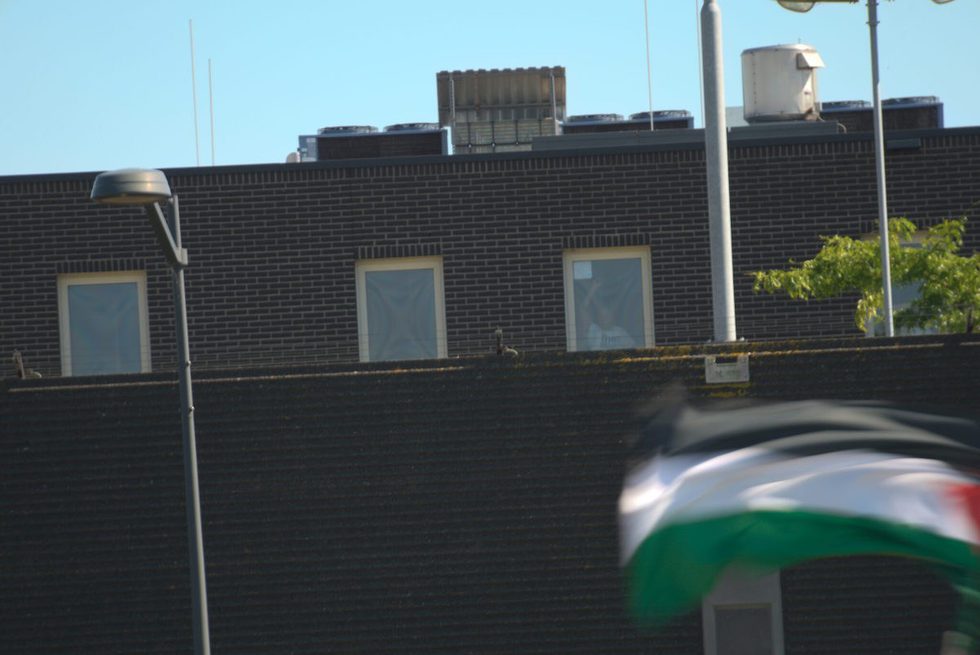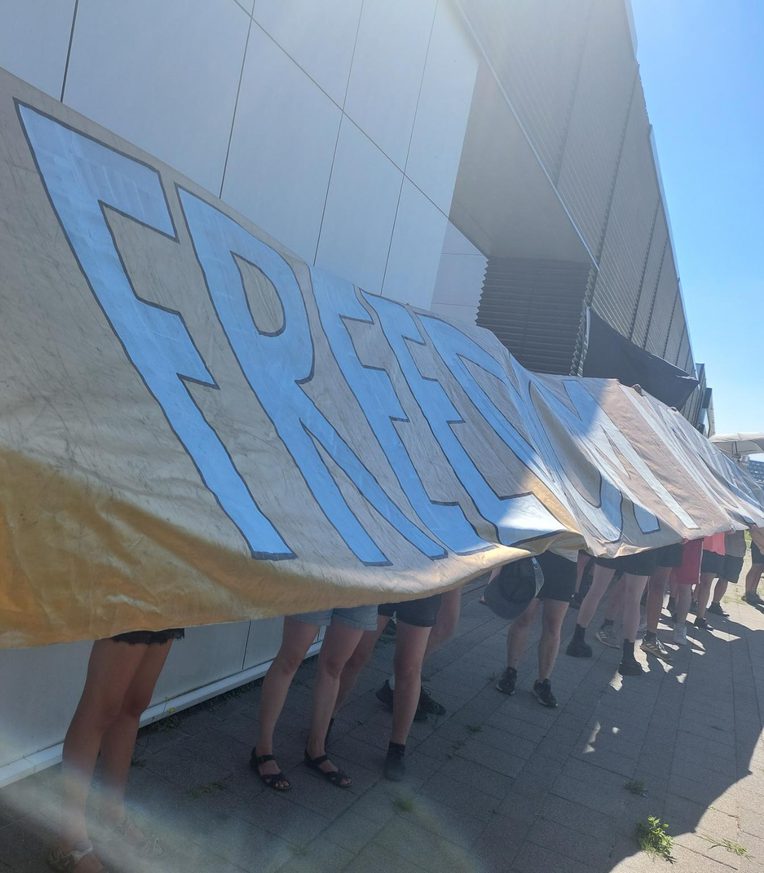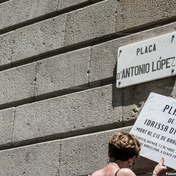
This series takes Judith Butler’s contention that “the photograph is not merely a visual image awaiting interpretation” but rather “itself actively interpreting, sometimes forcibly so” (2009, 71) as a point of departure. It returns to questions of representability, refusal, and recognition (Campt 2019) as a way to sit with and engage our feelings of disorientation and grief in the face of ongoing displacement, genocide, police and military violence, migrant detention, and border killings. Simultaneously—and perhaps also cautiously—the series also offers glimpses into abolitionist futures through a brief journey into collective archives of resistance.
“Absorbing Images” and “Caring for Images: Computational Anonymization as Refusal?” urge us to ask ourselves how technologies of representation—such as AI-generated or modified digital photography—are reconfiguring how we “make sense of ourselves” and others (Sobchack 2004, 138). How are we to engage with AI-generated images of war, such as those concerning the occupation of Palestine, and what is its impact on us as viewers? How ought we to document the struggles of illegalized and other targeted peoples? What are the affordances and limitations of drawing on computational technologies (such as facial anonymization) as part of our ethnographic, journalistic, activist, and/or artistic work? And what kinds of compromises, if any, do we consent to, when pursuing such “creative-critical ways” (Alvarez Astacio, Dattatreyan, and Shankar 2021) of engaging liberatory struggles?
““For He Will Kill You with His Horrible Sight”: Compiling the Belarus Political Book of Beasts” illustrates how Belarusian activists and hackers collectively produced an archive of regime tactics that could allow them to identify perpetrators and render the regime accountable for its violence.
“Border Abolitionism as Method: Engaging with Counter-archives of Resistance in and against Europe’s Detention Regime” invites us to step into corners of resistance and opacity through “rehearsals in unlearning” that move us closer to the border and prison abolitionist futures we desire—and which are very much already here.
Finally, “Movimiento Perpetuo, Consecuencia Natural” takes us through constellations of people, planets, and fluids in a cry for border abolition and the right to freedom of movement.
-ed. Arantxa Ortiz

References
Alvarez Astacio, Patricia, Ethiraj Gabriel Dattatreyan, and Arjun Shankar. 2021. “Multimodal Ambivalence: A Manifesto for Producing in S@!#t Times.” American Anthropologist 123, no. 2: 420–27.
Butler, Judith. 2009. Frames of War: When Is Life Grievable? New York: Verso.
Campt, Tina M. 2017. Listening to Images. Durham, N.C.: Duke University Press.
Sobchack, Vivian. 2004. Carnal Thoughts: Embodiment and Moving Image Culture. Berkeley: University of California Press.
Posts in This Series

Absorbing Images
Amongst photographs of brutalized bodies and sheet-bound corpses, of rubble and smoke, we sometimes encounter images that shock in a different way. For insta... More

Caring for Images: Computational Anonymization as Refusal?
Introduction Surveillance has been normalized into every aspect of our lives; “from the level of state practices all the way down to interpersonal exchanges amo... More

“For He Will Kill You with His Horrible Sight”: Compiling the Belarus Political Book of Beasts
In 2020, following Alexander Lukashenko’s claim of a landslide victory in presidential elections, Belarus witnessed the most massive protests in its modern hist... More

Border Abolitionism as Method: Engaging with Counter-archives of Resistance in and against Europe’s Detention Regime
In October of 2023, I participated in a colloquium on prisons, inequality, and carceral power hosted at the University of Amsterdam. My colleague, Arantxa Ortiz... More

Movimiento Perpetuo, Consecuencia Natural/ Perpetual Movement, Natural Consequence
Movimiento Perpetuo, Consecuencia Natural... More